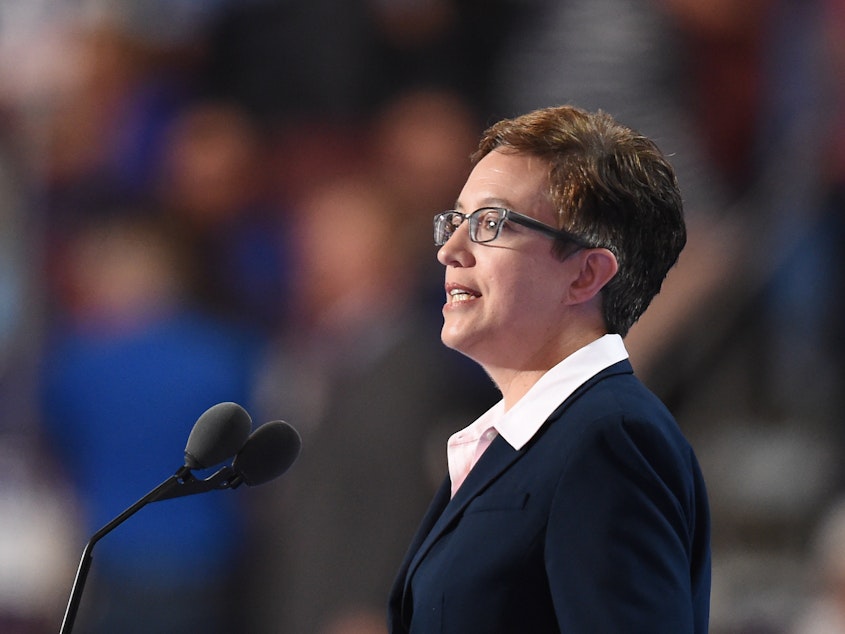Tina Kotek's win comes amid a wave of LGBTQ candidates running for office

Tina Kotek is on the precipice of making history following her win in Oregon's Democratic gubernatorial primary Tuesday.
"This will be a three-way race for the highest office in our state, and this will be an election unlike anything any of us have ever seen," she told supporters during her acceptance speech, Oregon Public Broadcasting reported.
If she wins the general election in November, Kotek, who is formerly the state's longest-serving speaker of the House as well as the first openly lesbian speaker in the nation, she will become the first openly lesbian governor in the United States. If elected, she told the Human Rights Campaign that she promises to continue her career-long work "to protect and lift up LGBTQ+ Oregonians."
Kotek's win comes at a time when more candidates running for office identify as LGBTQ. More than 600 LGBTQ candidates are on ballots this year, according to the LGBTQ Victory Fund, a nonpartisan political action committee that supports candidates running for office.
The Fund also says more LGBTQ people are running for Congress in 2022 than ever before.
Sponsored
"At least 101 people ran or are running for the U.S. Senate or U.S. House – with 96 still actively running as of February 21, 2022. That marks a 16.1 percent increase in LGBTQ Congressional candidates compared to the 2020 election cycle, when 87 people ran," the Fund's website reads.
Many candidates have cited the rash of anti-LGBTQ legislation passed by state houses in recent years as what prompted them to seek office.
"I'm running because [Montana] passed some of the most discriminatory bills we've had, you know, ever in the state of Montana," Jacob Torgerson, a gay man running for his state's House of Representatives, told NPR. [Copyright 2022 NPR]



